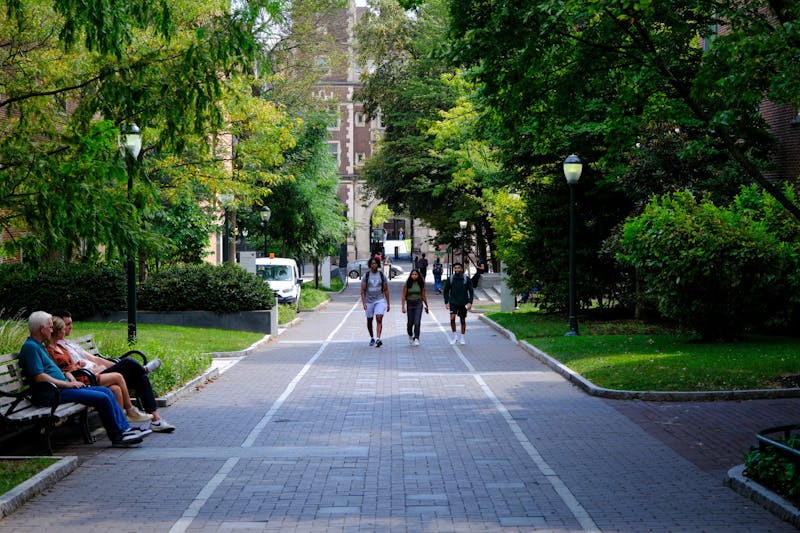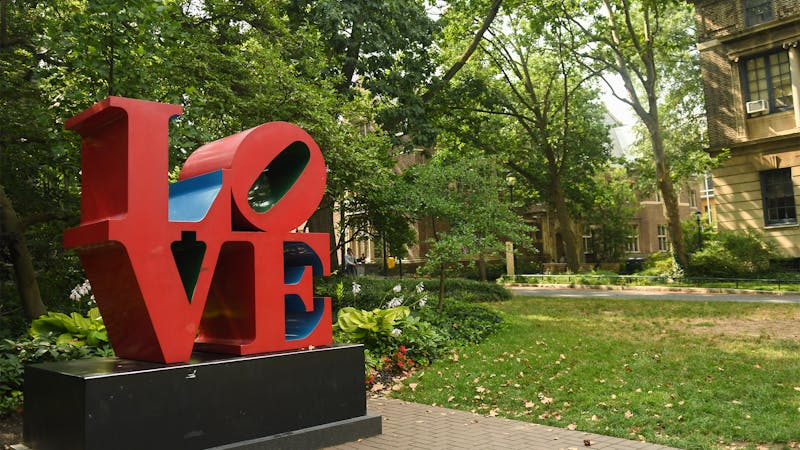
The Daily Pennsylvanian spoke to international and domestic students who applied to schools abroad and in the United States to learn more about their decision to enroll at Penn.
Credit: Chenyao LiuMany students among the over 65,000 domestic and international applicants to Penn’s Class of 2028 applied to schools both in the United States and abroad.
The Daily Pennsylvanian spoke with two international and two domestic students who applied to both universities abroad and in the United States to understand the differences in application processes and why all four ultimately chose Penn.
Incoming first year Finn Liu, who hails from Surrey, Canada, applied to a total of 21 universities — including schools in Canada, the United Kingdom, and the United States. For Liu, the Canadian application process was “actually fairly easy.”
Schools like the University of Toronto and the University of British Columbia offered straightforward essay prompts, while McGill University only asked for “grades and expected grades,” Liu said.
Liu ultimately chose Penn due to the opportunity to pursue a pre-law track combined with the university’s “very good preprofessional program” and generosity with financial aid in comparison to other schools he applied to.
The process of applying to schools in the United States “was worthwhile in the end” and “a lot more self-reflective,” despite being more complicated, Liu added.
Zahra Vakil, who studied at a British school based in her hometown of Dubai, United Arab Emirates, applied to schools both in the United States and United Kingdom.
Vakil told the DP that the United Kingdom’s Universities and Colleges Admissions Service system had streamlined application requirements.
“For all five universities, it was just one personal statement and then a few counselor recommendations,” she said.
In contrast, Vakil found the U.S. application process to be “a lot more grueling.”
She ultimately chose Penn due to the allure of the Wharton School and its programs, including the Environmental, Social and Governance Initiative, as well as the University’s strong alumni network.
Incoming first years Lucy Marone, who is from Philadelphia, and Isabelle Chapman, who grew up in New York and New Jersey, both applied to schools outside of the United States in addition to colleges in the country.
Marone considered universities in Ireland and Scotland alongside U.S. options and said that international schools were a more “viable option” for financial reasons. She added that she “fell in love” with both countries upon visiting family there.
She also noted that the applications to Trinity College Dublin and the University of Glasgow were “geared towards you having an idea about what you wanted to do, and so there didn’t seem to be an undeclared option.”
“[Penn] felt like a solution where I could do all of my interests and not have them compete with each other or have to cancel each other out,” Marone said, adding that she also chose Penn due to a combination of financial aid, prestige, and the Mediterranean archaeology program.
Chapman was drawn to applying to schools in Canada, and specifically McGill because of its location “in a city that is largely French-speaking."
Similarly, she found that the application process to schools in Canada and the United Kingdom was “actually a lot less effort as an international student,” especially since she received unconditional offers from some of them.
The Daily Pennsylvanian is an independent, student-run newspaper. Please consider making a donation to support the coverage that shapes the University. Your generosity ensures a future of strong journalism at Penn.
Donate











